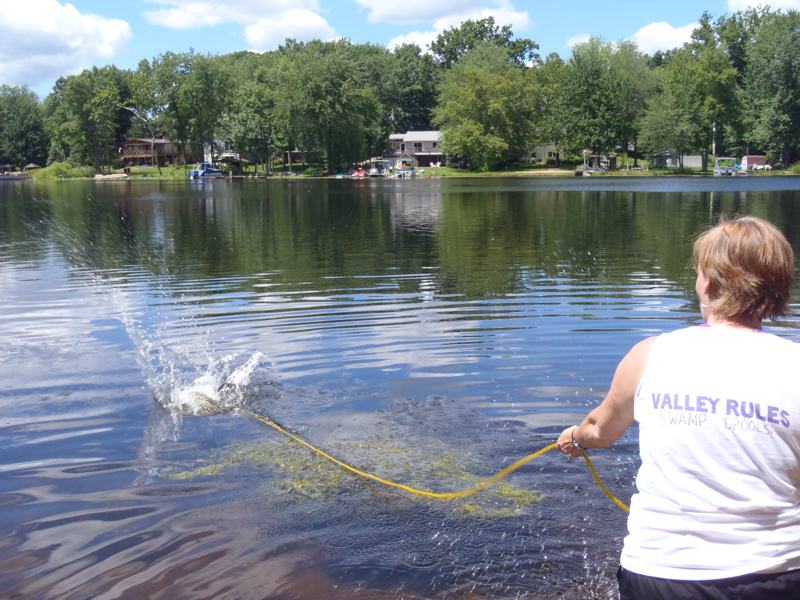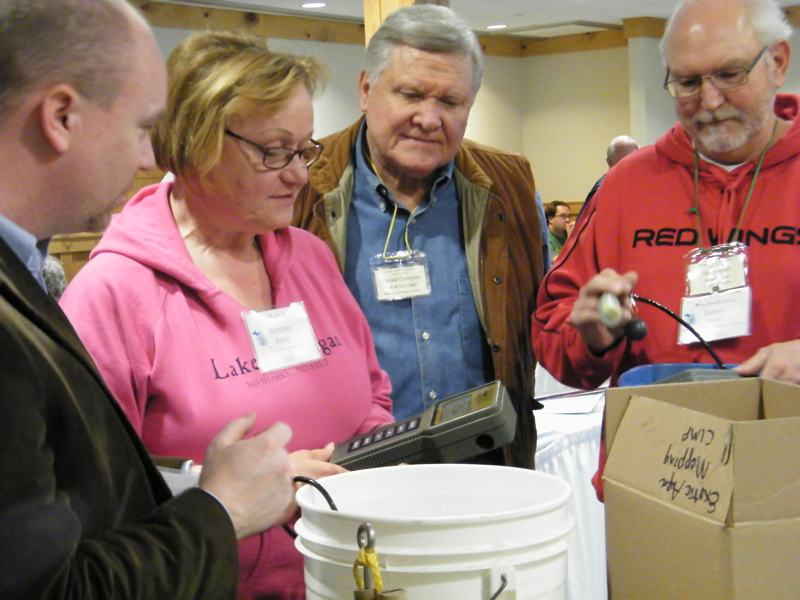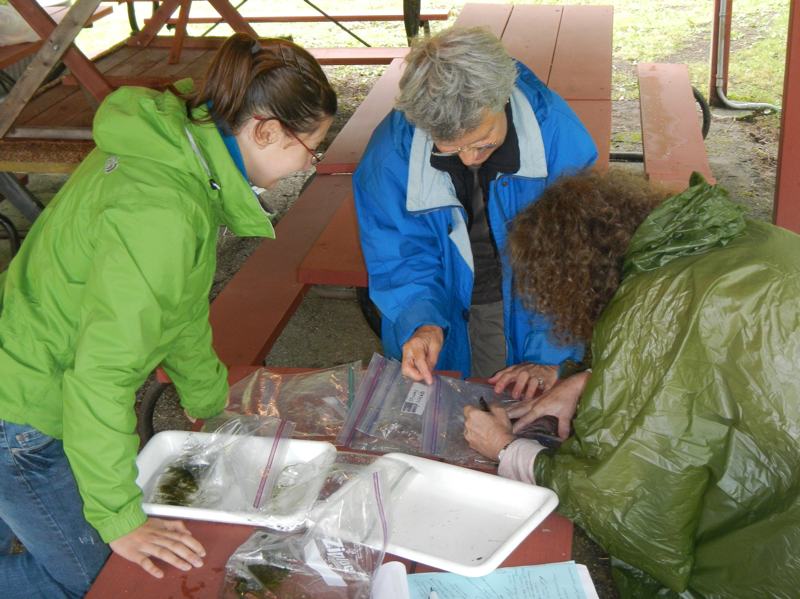2025 Cooperative Lakes Monitoring Program
Enroll Today!
——————————————————————————————————————————————————————————————–
The MiCorps’ Cooperative Lakes Monitoring Program (CLMP) has been an important component of Michigan’s inland lakes monitoring program for 50 years, which makes it the second oldest volunteer monitoring program for lakes in the country. The primary purpose of this cooperative program is to help citizen volunteers monitor indicators of water quality in their lake and document changes in lake quality over time.
Why Monitor?

Monitoring your lake’s water quality is part of what’s needed to keep it clean for the enjoyment of you and yours for generations to come. By monitoring, you’ll know if your lake continues to be ready for fun and recreation, or if it’s starting to degrade over time. And if there is a water quality problem, only monitoring will give you the advance warning needed to take early action to protect your lake. Enroll in the CLMP to start monitoring, and protecting, your valued lake.
The CLMP provides sampling methods, training workshops, technical support, quality control, and laboratory assistance for volunteers to monitor their lakes.
Technical Assistance
Lake Monitoring Documents: Visit our CLMP documents webpage to find everything you need to get started in lake monitoring, including suggested equipment and other tips. More resources on volunteer monitoring can be found throughout the site.
MiCorps-News Email List: The MiCorps-News email list is an excellent resource for volunteer monitoring in Michigan. Sign up today to receive news and announcements geared toward volunteer monitoring program leaders, volunteers, and resource professionals on monitoring and water quality issues in Michigan.
Contact Us: MiCorps staff are always available to answer your questions. Feel free to call or email us anytime.
Education and Training

Training Events and Materials: The MiCorps program offers training opportunities for both current and aspiring MiCorps volunteers. The CLMP training sessions focus on each specific monitoring program and how each type of monitoring can tell you something different about the health of your lake.
MiCorps Conference: The annual MiCorps conference, typically held in late fall, provides education and additional training opportunities for volunteer monitors and program leaders. Sign up for our email list to receive updates on the conference.
Monitoring Programs
The CLMP offers training and technical assistance for the following volunteer lake monitoring programs:
- Secchi Disk Fact Sheet
- Total Phosphorus Fact Sheet
- Chlorophyll-a Fact Sheet
- Dissolved Oxygen and Temperature Fact Sheet
- Aquatic Plant Fact Sheet
- Exotic Aquatic Plant Fact Sheet | Brochure
- Score the Shore Fact Sheet
- Decontamination of Field Equipment Fact Sheet
View past CLMP Annual Reports to learn more about what these types of monitoring and data can show.
More Information
MiCorps’ Cooperative Lakes Monitoring Program (CLMP) provides technical assistance, training, and other support to volunteer lake monitors in Michigan to ensure that they are collecting reliable, high-quality data.
Ready to become a CLMP volunteer? Visit our program enrollment page.
Cooperative Lakes Monitoring Program Brochure (tri-fold style for 8.5 x 11 paper)
If you have any questions about the CLMP, please contact Erick Elgin with Michigan State University Extension at elgineri@msu.edu, and subscribe to our email list to receive announcements and updates on these monitoring programs.






